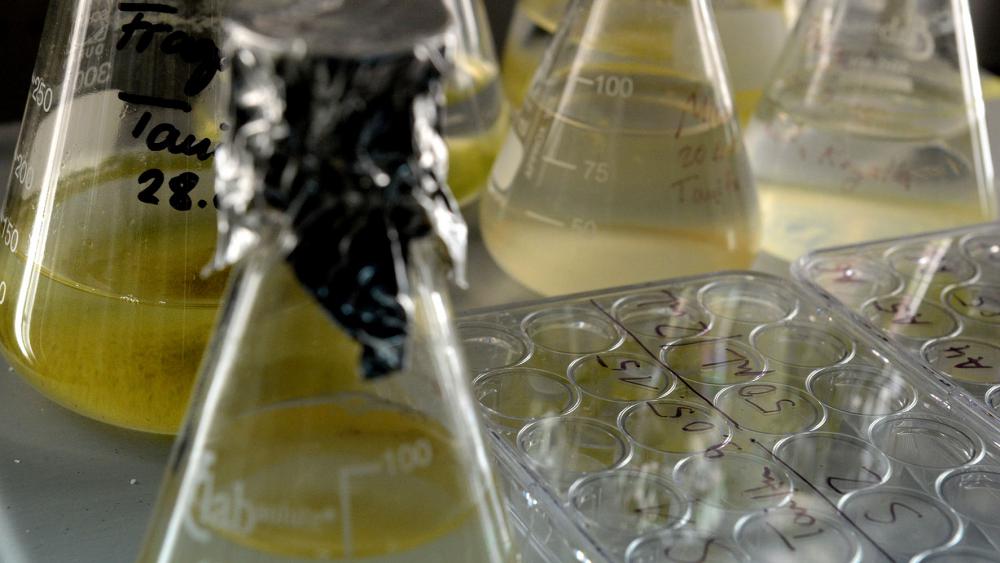
Soils and waters are worldwide affected by synthetic chemical pollution. | Photo: David Ausserhofer
Emma J. Rosi, a freshwater ecologist at the Cary Institute and a co-author on the paper, explains, “To date, global change assessments have ignored synthetic chemical pollution. Yet these chemicals are increasing at a rate that is on par, or more rapid, than other agents of global change, such as CO2 emissions or nutrient pollution.”
The study’s team assessed global trends in synthetic chemical pollution since the 1970s, and compared results to other drivers of global change. Author Emily S. Bernhardt, professor of biogeochemistry at Duke’s Nicholas School of the Environment, comments, “Research on the ecological impacts of synthetic chemical pollution has been static since the 1970s. But our portfolio of these manufactured chemicals keeps growing – with more than 80,000 now in use commercially. This knowledge gap is becoming a chasm, with real consequences for ecological health.”
Synthetic chemicals meet the criteria set out by the Millennium Ecosystem Assessment to define agents of global change: they are globally distributed, they increase in relation to human populations and economic growth, and they have known impacts on organisms. Yet they have largely remained below the radar of global assessments.
Pesticides, pharmaceuticals, and industrial chemicals can leave long-term toxic legacies that ripple through ecosystems. Traditional ecotoxicology, done in laboratory settings on individual chemicals, bears little resemblance to the behavior of these compounds in nature. Some accumulate in food webs; others become more toxic due to reactions with chemicals already in the environment or through transformations by organisms or sunlight.
Co-author Mark O. Gessner of the Leibniz-Institute of Freshwater Ecology and Inland Fisheries (IGB) explains, “Identifying the environmental threat of synthetic chemicals as a whole relies on new concepts and greatly intensified research. At present there is grossly insufficient information to assess the environmental impact of the wide variety of synthetic chemicals in use today, particularly when it comes to effects at a large scale and in the long run.”
Among the paper’s recommendations: accelerating synthetic chemical impact research by mobilizing increased funding, fostering collaboration among ecologists and ecotoxicologists to better predict and reduce environmental harm by synthetic chemicals, and launching an internationally-coordinated effort to assess how synthetic chemical pollution impacts the goals and targets of the Intergovernmental Panel on Climate Change (IPCC), the Intergovernmental Panel on Biodiversity and Ecosystem Services (IPBES), and the Sustainable Development Goals (SDGs).
Rosi concludes, “In the 1960s, Rachel Carson’s Silent Spring sounded the alarm on the environmental dangers of synthetic chemicals. The problem hasn’t gone away, it’s only intensified, and we need to reawaken awareness. Synthetic chemicals are leading agents of global change and it’s essential that we invest in the research needed to understand and minimize their impacts.”
The study benefitted from support through the Alexander von Humboldt Foundation and an IGB Fellowship in Freshwater Science.
Study:
Emily S Bernhardt, Emma J Rosi, and Mark O Gessner (2016): Synthetic chemicals as agents of global change. Front Ecol Environ 2017; 0(0): 1–7, doi:10.1002/fee.1450





